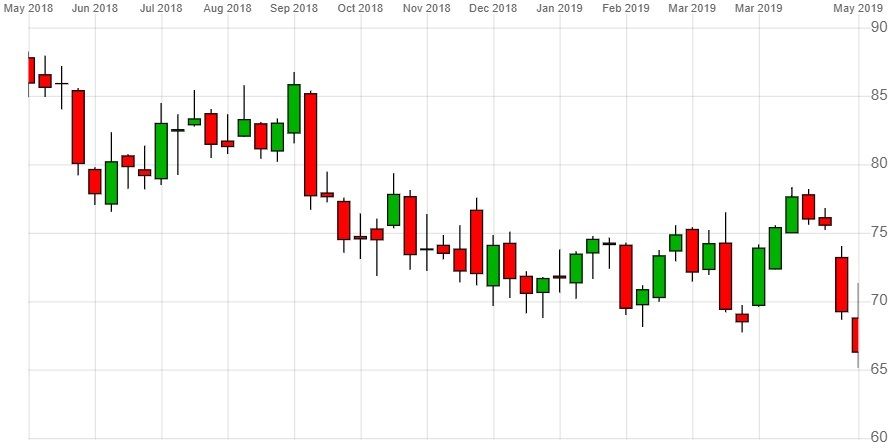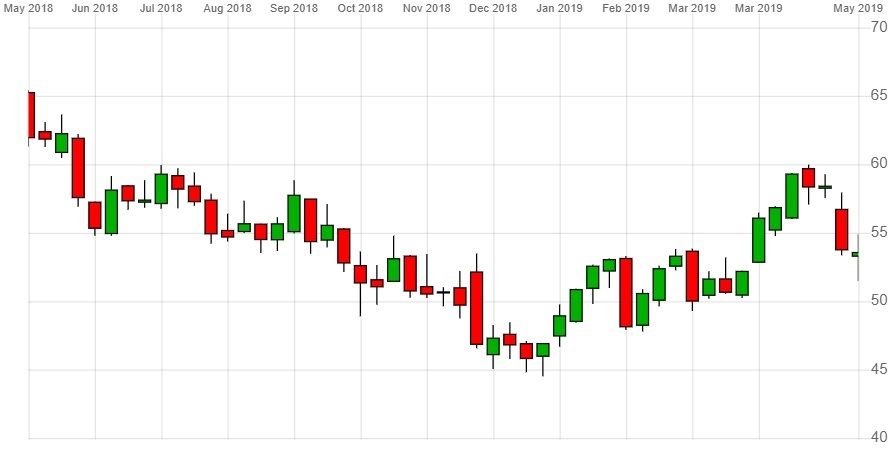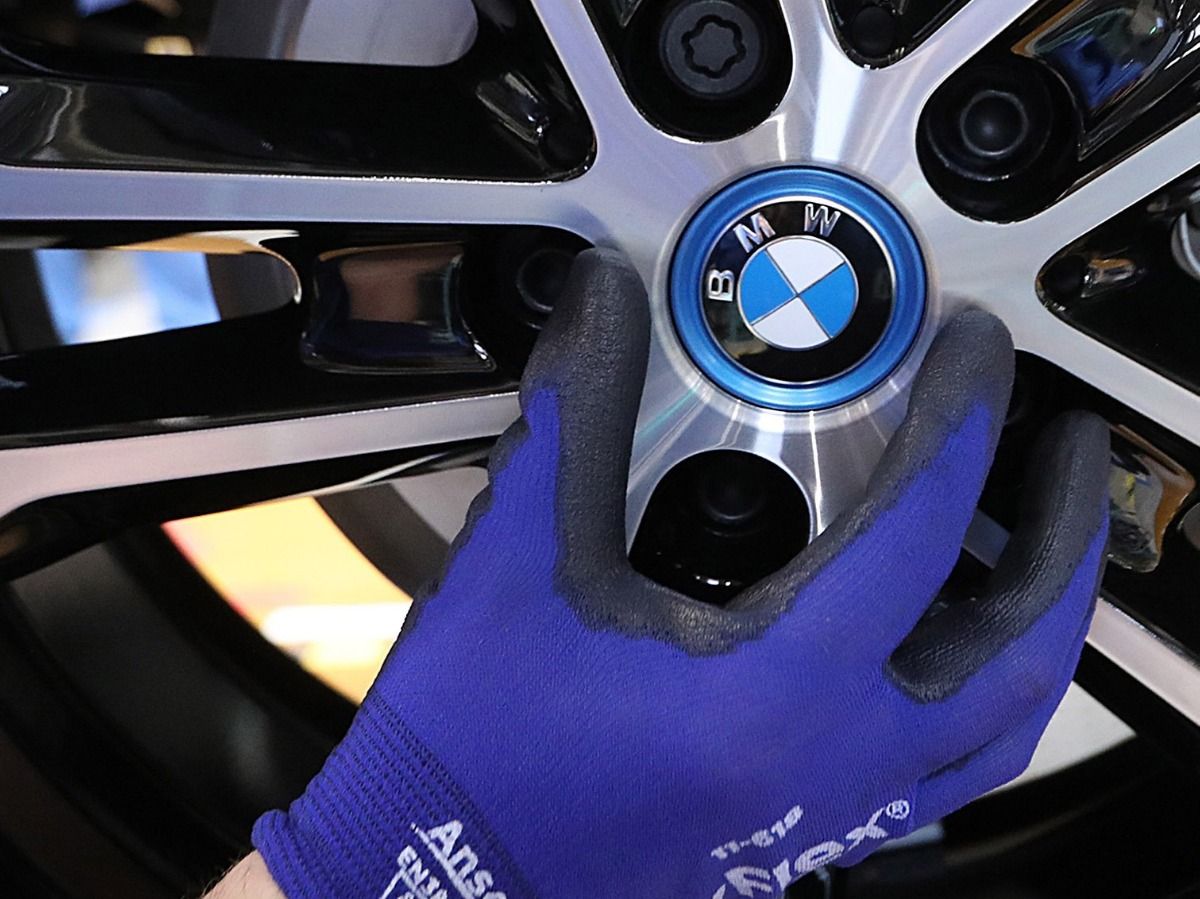It’s not been an easy start to the year for European automobile shares. The Nasdaq OMX Global Automobile index price has risen barely 2.4% since the start of January, while across the continent slowing sales, heavy investment in electrification, and tougher emission standards are all impacting an industry that is already operating on razor-thin margins.
In Germany, the powerhouse of European car making, Volkswagen, BMW and Daimler – whose share prices trade at P/E ratios well below Refinitiv’s sector average of 19 – are each fighting against regulatory backlash (the trio have been accused by the European Commission of colluding to delay the introduction of clean-emission technology), a slowdown in passenger vehicle sales, and ballooning R&D costs. But while no carmaker posted stellar results in the start to the year, investors’ optimism has varied substantially from brand to brand.
2.45%
The Nasdaq OMX Global Automobile index's increase year-to-date
BMW share price
Munich-headquartered BMW Group [BMW] earlier this month posted a 78% fall in Q1 earnings before interest and tax, to €589m. This, and a €1.4bn legal provision in response to alleged antitrust violations from the European Commission, took BMW’s core passenger car unit into the red for the first time in a decade.
CEO Harald Krueger is sticking to full-year forecasts and promising to make up for this poor performance in the second half of the year, when the group is scheduled to launch a slew of new models – including an electric SUV.
But investors are not convinced – trading at €66 a piece last week, the share price is down some 15% from its 18 April year-to-date high, and 5% from year open – and analysts see little in the way of a miraculous end-of-year comeback: “With an auto margin of 5.6% and negative free cash flow, it’s evident that BMW is struggling to deliver its target level of profitability,” wrote Bernstein Research analyst Max Warburton. “The factors behind this are unlikely to ease anytime soon.”
Volkswagen share price
Surprisingly for a carmaker that’s still paying for the original sin of Dieselgate – the 2015 scandal which revealed emissions test cheating – Wolfsburg-headquartered Volkswagen Group [VOW3] posted arguably the most resilient results in the European auto industry in Q1, with revenues rising 3.1% year-on-year to €60bn.
| Market cap | £72.59bn |
| PE ratio (TTM) | 6.40 |
| EPS (TTM) | 22.98 |
| Return on equity (TTM) | 10.44% |
Volkswagen share price vitals, Yahoo finance, 21 May 2019
While high-margin, luxury brands Porsche and Audi recorded a fall in sales volumes, strong demand for Volkswagen’s high-margin SUVs offset a €1bn provision levied on the firm in relation to diesel emissions cheating, allowing the board to keep 2019 targets unchanged.
“VW is defying the odds and growing earnings while others decline,” wrote Bernstein’s Warburton. And while things could still take unexpected turns – unlike BMW, VW is yet to account for any fine from the antitrust investigation on emissions tech – its stock is a silver lining in the sector: it’s up 6% in the year-to-date.
Daimler share price
Ever BMW’s rival: Daimler [DAI]. The Mercedes-Benz parent company is having a better run so far in 2019, as far as stock performance goes. Shares in the auto company peaked at a year-to-date high of around €59, also on 18 April, but a far stronger run-up has meant that even after declining to the current €53, the stock is still up 13% compared to the end of 2018.
Still, the company has faced the same headwinds as BMW during the first quarter, with declining Mercedes-Benz deliveries pushing profits down 16% year-on-year. Outgoing CEO Dieter Zietsche did not hide that sticking to full-year targets had “not become easier”.
The company is currently in the middle of reorganising its business around three verticals: passenger cars, trucks and mobility services. All eyes will be on the incoming chief executive Ola Kallenius to navigate the company through this transition and achieve its full-year forecasts.
At least on the R&D front, Daimler is set to get some external help. Li Shufu, chairman of Volvo’s Chinese parent Geely, has quietly built up a 10% stake in the German carmaker over the past year (making use of all financial tools available so as not to have to disclose the stake until it was a done deal). Geely has also reportedly taken a 50% stake in Daimler’s Smart Car brand, an ill fit in the company’s portfolio that has dragged on group profits for two decades. Additionally, BAIC, another Chinese carmaker, is reportedly looking to buy as much as 5% in Daimler.
Continue reading for FREE
- Includes free newsletter updates, unsubscribe anytime. Privacy policy





